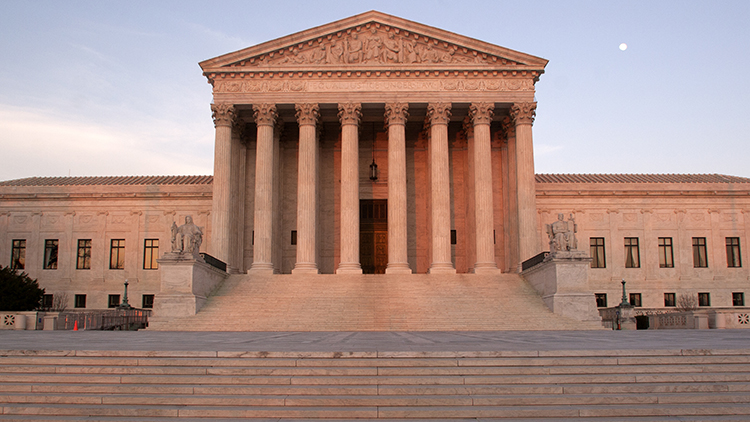
You’ve learned that United States laws are based upon the United States Constitution. But what happens when people disagree about what the Constitution means? That is where the Supreme Court comes in.
The Supreme Court decides whether laws [a rule enforced by the government] and policies [an action taken by the government] are constitutional or unconstitutional. The Supreme Court hears cases where both sides present their arguments about why they think a law or policy is unconstitutional or not. The nine Supreme Court Justices decide who they think is right and then they give their ruling.
The Supreme Court hears cases between October and June. This means the Supreme Court just ended their term. They made two important rulings. The first ruling was about gerrymandering. Gerrymandering is the process of reshaping election districts in order to favor one political party. While the court said gerrymandering is undemocratic, they ruled that federal courts do not have the authority to stop it. It should be up to states to decide how to shape their districts.
The second ruling was about the United States Census. This is an official count about who lives in the United States. The Supreme Court ruled that the government may not ask people if they are United States citizens while conducting their census. Opponents of the question argued that asking the question would frighten non-citizens and lead to minorities being undercounted. The court ruled that the United States did not give a good enough reason for including the question.
The Supreme Court accompanies their ruling with opinions. A majority opinion is a written document that explains the reasons for the court’s ruling. Justices that do not agree with the ruling can write dissenting opinions. These express concerns about rulings. In both of the court’s recent rulings, the court’s opinion was divided. Five justices agreed with the ruling and four justices disagreed.
What Do You Think? Why do you think it is important for the Supreme Court to explain their rulings? Why do you think it is important for justices to write dissenting opinions?
Photo Credit: David Planchet



